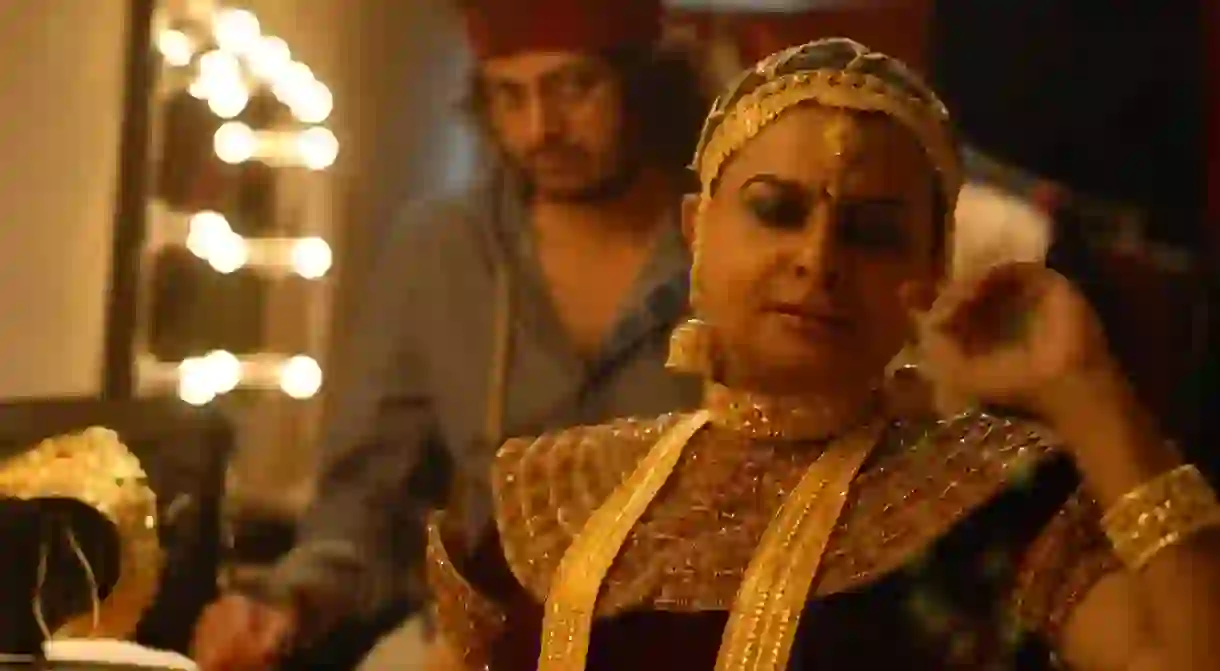Rituparno Ghosh And His Art Of Sensitive Storytelling

One of the most gifted filmmakers and sensitive storytellers in Indian cinema, Rituparno Ghosh was a visionary. He was known to push the envelope with not just the subjects of his films but also through his personal life and his unique avatar: bald head, eyes lined with kohl, his flamboyant dressing sense… constantly urging society to reconsider stereotypes.
‘But, my city, I know, can neither handle me nor ignore me.’ – Rituparno Ghosh
Ghosh graduated with a degree in economics from Kolkata’s Jadavpur University. It was during his college days, when he attended various film festivals, that he was moved by the works of director Satyajit Ray. Ray’s films convinced Ghosh that his true passion is filmmaking.

Ghosh’s films marked a renaissance in the Bengali Cinema. His writing was subtle and persuasive. His characters spoke volumes, not so much with words as with body language. He touched upon the finest of human emotions and the emotional tangles of relationships. In Unshie April (1994), he explored the bittersweet emotion and intricacies of the relationship between an ambitious mother and her independent daughter. Another National Award winner, Bariwali (1999), is a tale of a lonely woman who has long led a solitary life, and is jolted into glamour when she is forced to let some city folks shoot inside her mansion. She is drawn towards the director of the film, and her new-found joy adds color to her life. The film concludes in despair after the crew decamps her mansion; her excitement recedes as she feels her loneliness hitting her back even more acutely.
In an interview with Mint, Ghosh says, ‘I think the thrill of filmmaking is when the audience will be partly annoyed, some will be indifferent, others enthusiastic and yet [there are] others who can completely identify themselves with a film.’

Ghosh brought out into the open subjects that were barely discussed. His film Choker Bali (2003) talks about widowhood, re-marriage, and passion taking the form of lust and deceit in manipulative relationships. His stories often question the powers of woman in a patriarchal society and his films often portray female protagonists throwing off the mantle of patriarchal repression, even if it is by abandoning and walking out of the assumed bliss and security of marital life: characters like Ramita in Dahan and Binodini in Chokher Bali abandon their homes, husbands, and suitors in order to explore a life beyond the restrictive boundaries of relations, society, and home. Ghosh called his films ‘womanist’ and not ‘feminist’.

‘The rebellion she puts up is symbolized by the repetitive use of the colour “red.” “Red” is not just the colour of passion; it’s also the colour of revolt in Chokher Bali.’ – Rituparno Ghosh
Ghosh expressed hard hitting reality on celluloid; his films often dealt with the truth behind apparently happy marriages or relationships. Of the utmost importance were his sets, the atmosphere, the costumes, and all forms of non-verbal communication that expressed the underlying emotions. Mostly shot indoors, his movies rely heavily on dialogue and score.

For instance, in Raincoat (2003), the ceaseless rain is at the heart of the movie, speaking for the unspoken secrets of two former lovers that meet after years of separation. It is shot almost entirely inside a house of a zamindaar in Kolkata, a room with antique furniture lying around carelessly in the house, with a sultry atmosphere in hues of grey and blue. Spreading light and warmth is a single candle in the room, symbolizing the frail yet uncurbed love between the two protagonists. The surroundings are crowded and messy, speaking for the present state of affairs in their lives, the worn out looks on their faces. Hesitation, desperation, and loneliness, yet also passion, are expressed in the eyes and mannerisms of the two former lovers. Ghosh tells the tale in the most sensitive and artistic form possible; his narration is uncompromising and poetic.

‘Only Ritu da could write a screenplay with dialogues, which could make the audience sit for two hours in the theatre and watch a chamber drama. Such was his talent.’ – Filmmaker Srijit Mukherjee













